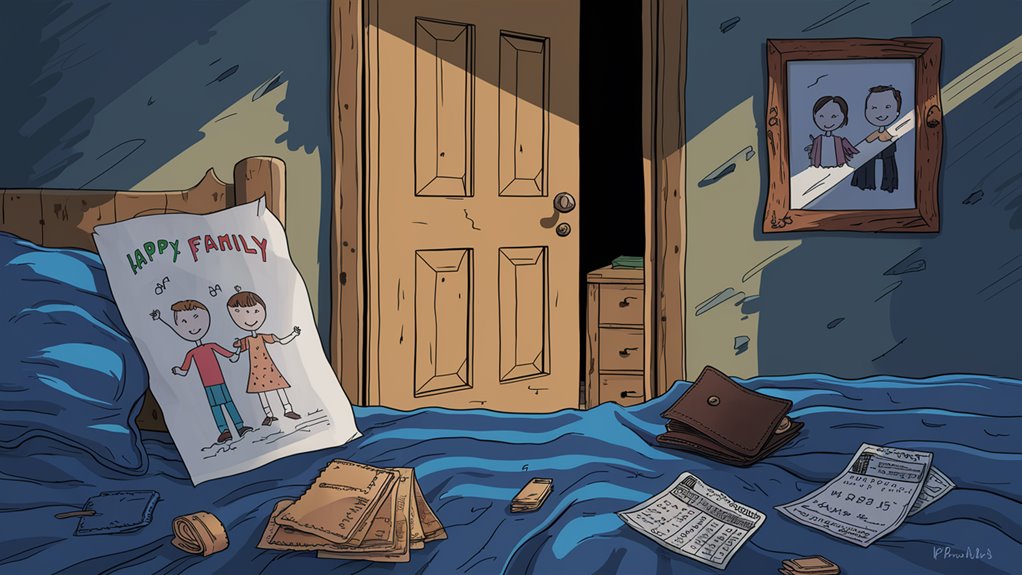The Dark Side of Gambling: How It Rules Lives

The Big Risk of Gambling Addictions
Betting problems hit close to 1% of U.S. folks, harming people, homes, and groups. Like drug habits, gambling illness changes the brain, takes over joy ways, and needs bigger risks for the same high.
The Brain and Gambling Effects
Betting hits hard on the brain’s joy parts. Long-time betting shapes brain ties as drugs do, leading to:
- Needing to bet more
- Bad feelings when trying to stop
- Always thinking of betting
- Can’t stop gambling
Money and Friends Lost
Problem gambling often makes big money woes such as:
- All savings gone and no funds for the future
- Big credit card debt and loans
- No home due to not paying money owed
- Lost or ruined friends
- Issues at work
Ways to Beat Gambling Trouble
One can get better from betting issues through steps like:
- Talk and action help (CBT)
- Help groups and owning mistakes
- Money advice and fixing debt
- Talks in the family to mend ties
- Drugs if needed for other problems
Signs and Halting Gambling Early
Seeing signs of betting issues early on:
- Using needed money to bet
- Trying to beat past losses with more bets
- Hiding bet acts
- Taking loans for bets
- Skipping work or home duties
Knowing these signs helps in starting to fix things earlier with the right aid and help.
What Is Gambling Illness?
Need to Know About Gambling Illness
What is Gambling Illness?
Gambling illness is a big problem where ongoing and repeated betting acts hurt the person.
About 1% of U.S. adults face this, with different rates elsewhere and among varied groups.
Signs and Finding It
Main signs of gambling illness are:
- Betting bigger amounts
- Can’t stop or cut down betting
- Always thinking about betting
- Mad when trying to stop
- Betting to run from problems or to feel better
Tied Problems and Brain Link
Gambling illness often comes with other mind health issues like:
- Worry illnesses
- Sadness and mood problems
- Substance use trouble
The problem links to brain joy paths much like drug habits.
It shows gambling illness is a real mind health issue needing expert help, not just about willpower.
Bad Results and More Problems
Without help, gambling illness can cause big trouble such as:
- Money ruined
- Lost relationships
- Problems at work
- Legal trouble
- Worse mind health
Finding it early and getting help can stop these bad ends and push to get better.
Signs and Dangers
Seeing Key Signs and Risks of Gambling Illness
Critical Signs
Problem betting acts show up in many ways. A fix on betting happens when someone can’t stop thinking about old or coming bets.
Chasing losses, where gamblers bet more to get back lost money, is a big sign. Other key signs include lying about betting and looking for money mainly to bet.
Act issues come when people face withdraw signs like being mad when trying to bet less. Not able to quit even with trouble shows deep addiction.
Risks
Inborn Things
Genetic roles may be big in gambling illness. A family past of addiction ups the risk and signs that influence act control can lead one to betting issues.
Outside Things
Starting to bet early through family or pals adds to the problem. Hard life times and money trouble push the risk up. Easy reach to betting spots or online betting grows the shot at addiction.
Mind and Heart Points
Mind health issues tie close with gambling illness:
- Huge worry or sadness
- Substance use troubles
- Risk-seeking acts
- Poor act control
Higher Risk Groups
Young folks are more at risk of betting problems. Being male links with more gambling issues. Money lack plus easy bets put some in weak spots for addiction.
How Gambling Costing Homes
How Gambling Illness Hurts Homes

Close Family Pain
The harm from gambling addiction goes beyond just the gamer, hitting the whole home.
Problem betting breaks trust, uses all money, and brings much stress to all at home.
Partners of gamblers often feel fear, sadness, and cheated on finding hidden bills or lost savings.
Kids’ Load
Kids in homes hurt by betting face big growing challenges. These kids see:
- No real heart support
- Money not okay at home
- Not regular care
- Early big duties
- Messy home life
Kids often have to step up, trying to keep the home okay or care for young ones when parents are lost in bet urges.
Wide Family Hurt
Family ties hurt a lot as betting illness grows worse. Usual troubles include:
- Money taken without asking
- Often lying
- Using others for money gain
- Broken trust
- Worse family talks
The circle of addiction leaves deep marks in family ties that stay even after getting better.
Feeling alone often comes from shame and secrets, keeping families from seeking needed help and making relation strains worse.
Recovery as One
Moving past shame means:
- Expert guidance
- Family talks
- Handling money issues
- Building trust again
- Open talks
- Help from groups who know
Money and Law Troubles
Money and Law Messes from Gambling Issues
Money Crash
Problem betting leads to a big money fall in many ways.
Folks with betting problems often pull up huge credit debts, use all savings, and turn to costly risky loans.
Using retirement money brings big tax costs, killing any chance for a safe, long-term money calm.
Law Trouble and Bad Acts
Needing cash can lead bet addicts to do illegal acts to get bet money. Usual illegal moves include:
- Making fake checks 토토사이트 추천
- Modern random number generators power
- Taking money from work
- Insurance lies
- Stealing from kin
- Taking someone’s ID
These moves lead to bad law results, often ending in jail time, big fines, and criminal records that hurt future chances.
Money Trouble Stays
The bankruptcy rate among betters is way higher than most. Mix of:
- Law bills
- Paying back stolen money
- Modern random number generators power
- Court money penalties
- Hurt credit scores
Starts a long cycle of money troubles that last years. These problems stop efforts to get law help, homes, bank help, and money fixes.
Ways to Get Better and Treatment
Good Plans for Fixing and Treating Betting Issues
Full Treatment Plans
Talk and action help (CBT) is key in facing betting challenges, aiding one in finding what starts their betting and making better ways to cope.
Help groups and Gamblers Unknown add to CBT by giving needed friend help and holding folks to their fixing tasks.
Deep Fix Programs
Homes for full care give full help for big betting issues.
These special programs mix deep talk help with money advice to face both mind and money worries.
Drug help, like mood helpers and mind health drugs, work well for other mind conditions that make betting urges worse.
Stop Measures and Early Help
Family help is key in getting over addiction by fixing broken ties and building strong help nets.
Self-stop programs are needed in stopping, letting folks stop their reach to casinos and online betting spots.
Keep care and plans to stop falling back, with routine checks by mind health pros, give the needed tools for keeping long wellness and getting money health back.
Key Fix Parts
- Treatments based on proof
- Money advice by experts
- Built help nets
- Stop moves
- Keeping efforts to get better


